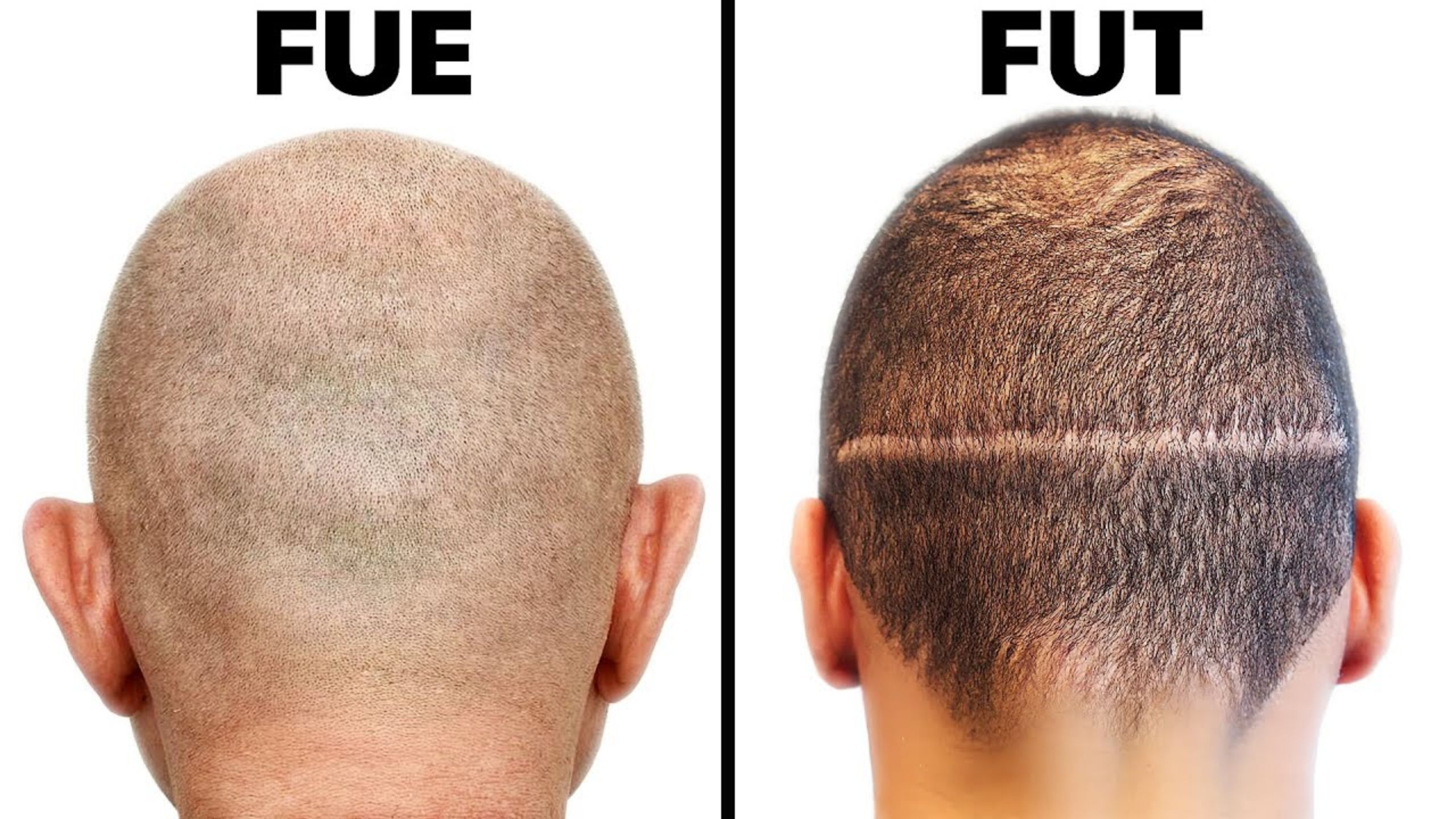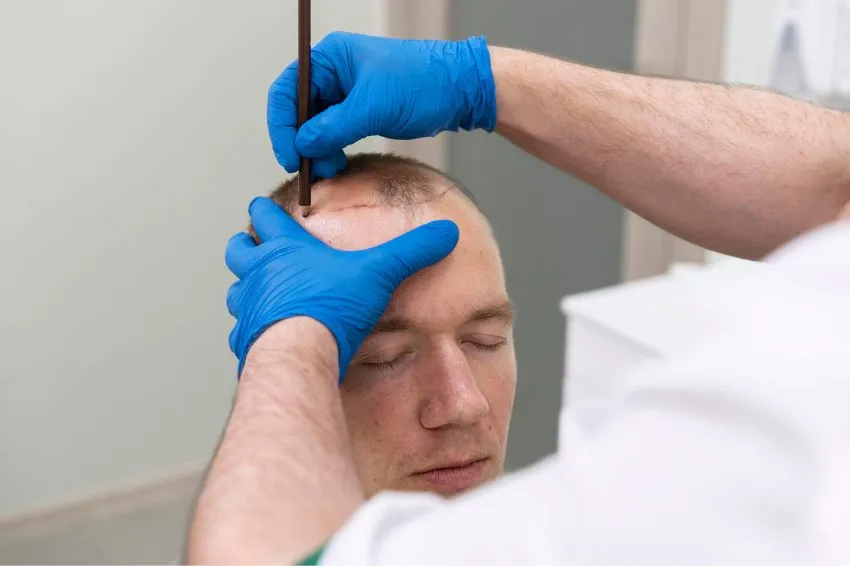Since the COVID-19 pandemic, remote work has become part of everyday life for millions of Americans. While it has brought flexibility and convenience, it has also introduced new challenges – particularly in mental and physical health.
One unexpected side effect many have reported? Increased hair shedding or thinning.
If you’ve recently transitioned to working from home and noticed hair loss, you’re not alone. This article explores the link between remote work stress and hair loss, explains how it works medically, and provides solutions backed by clinical practice.
Understanding Hair Loss Mechanisms
Hair loss (alopecia) isn’t a one-size-fits-all issue. It can be caused by:
- Genetics (Androgenetic Alopecia) – hereditary pattern baldness in men and women.
- Telogen Effluvium – temporary shedding due to stress, illness, or hormonal imbalance.
- Alopecia Areata – autoimmune attack on hair follicles.
- Traction Alopecia – from tight hairstyles or tension on the scalp.
- Nutritional Deficiencies or Hormonal Imbalance.
Among these, Telogen Effluvium is most directly related to stress – and is potentially reversible with proper management.
The Physiology of Stress and Hair Shedding
How Stress Causes Hair Loss (Medically Explained):
When you experience stress, your body activates the hypothalamic-pituitary-adrenal (HPA) axis, increasing levels of cortisol – your stress hormone.
High cortisol:
- Disrupts the hair growth cycle, pushing follicles prematurely from the anagen (growth) phase into the telogen (resting) phase.
- A few weeks to months later, large amounts of hair may shed – this is known as Telogen Effluvium.
- Chronic stress may also promote oxidative stress, which damages follicle health and increases inflammation.
According to studies published in the Journal of Dermatological Science and The American Journal of Pathology, psychological stress can disrupt hair follicle function through neuroendocrine and immune pathways.
Remote Work: A Modern Stressor
Working from home sounded ideal at first—but it’s proven to be a mixed bag for many.
Remote workers now face:
- Blurred work-life boundaries
- Longer screen time
- Social isolation
- Reduced physical activity
- Unstructured routines
- Increased economic or job-related anxiety
These factors can increase cumulative stress – and the scalp, rich in blood vessels and sensitive to hormone changes, is often where this stress reveals itself first.
Why Remote Work Stress May Be Causing Hair Loss
Let’s break it down.
1. Zoom Fatigue and Mental Load
Back-to-back meetings and emails are mentally taxing. This constant stimulation keeps the brain in a heightened stress state.
2. Work-Life Imbalance
Without clear office hours, many find themselves overworking. Chronic fatigue affects hormone regulation and weakens the body’s immune and endocrine systems – key to hair growth.
3. Isolation and Anxiety
Lack of daily interaction and pandemic-related uncertainty increase levels of cortisol and adrenaline, which can lead to follicle miniaturization or trigger autoimmune responses like Alopecia Areata in susceptible individuals.
4. Sleep Disruption
Poor sleep impairs melatonin production, which is involved in regulating the hair growth cycle.
5. Nutritional Gaps
Stress eating or skipping meals can result in iron, vitamin D, and biotin deficiencies—common triggers for hair loss.
Signs of Stress-Induced Hair Loss
Wondering if your hair loss is stress-related? Look for:
- Sudden increase in hair in the shower or on your pillow
- Diffuse thinning across the scalp (not patchy)
- Hair feels weaker, breaks easily
- Increased shedding 2–3 months after a major stressor
- Scalp sensitivity or itching
Important: If you see circular patches of hair loss, this may signal alopecia areata, which requires medical attention.
Other Work-from-Home Lifestyle Factors Causing Hair Loss
Even if stress isn’t the main cause, remote work often affects lifestyle habits that impact your hair.
Poor Nutrition
Fast food, caffeine, and skipped meals lead to micronutrient deficiencies. Hair is a non-essential tissue, so it suffers first when nutrition is suboptimal.
Sedentary Lifestyle
Lack of exercise = less blood circulation = reduced oxygen to hair follicles.
Poor Sleep Hygiene
Late-night binge-watching or checking work emails in bed disrupts circadian rhythm, which plays a role in hormonal regulation and follicle health.
Tight Hair Styling for Zoom
Pulling your hair back tightly for video calls can lead to traction alopecia over time.
Tips to Reduce Stress and Protect Hair Health
1. Structured Workday
- Set fixed work hours
- Use task lists and take breaks
- Avoid screens 1 hour before bedtime
2. Balanced Nutrition
- Include protein (eggs, fish), iron (leafy greens), omega-3s (flaxseed, salmon), and biotin-rich foods (nuts, sweet potatoes)
3. Stress Management
- Practice daily deep-breathing, yoga, or meditation
- Limit doom-scrolling and news exposure
- Consider online therapy if anxiety is persistent
4. Scalp Care Routine
- Gentle massage with rosemary or peppermint oil
- Avoid hot water and harsh shampoos
- Let your scalp breathe (don’t wear tight caps/hats often)
5. Supplement Wisely
Consult a physician about supplements like:
- Biotin
- Vitamin D
- Iron
- Zinc
When to Seek Help: Treatment Options That Work
If lifestyle changes haven’t reversed your hair loss within 4–6 months, it’s time to consult a professional.
Dr. Diep and his team offer proven, physician-guided treatments:
PRP (Platelet-Rich Plasma) Therapy
Concentrated plasma from your blood is injected into the scalp to stimulate dormant follicles.
Medical Treatments
- Minoxidil (topical solution)
- Finasteride (oral, men only)
Always prescribed and monitored under medical supervision.
FUE/FUT Hair Transplant Surgery
- Ideal for pattern baldness or permanent loss
- Dr. Diep specializes in curly and fine hair types, delivering a natural hairline that lasts a lifetime
Exosome Therapy
An emerging regenerative option that uses stem-cell-derived vesicles to promote follicle healing.
Why Choose Dr. Diep for Hair Restoration
When you’re ready to take your hair seriously, turn to a trusted expert.
Meet Dr. John Diep
✔ Board-Certified Hair Restoration Specialist (ABHRS)
✔ Expert in FUE & FUT, especially for curly and fine hair
✔ Featured in Newsweek as a Top Hair Loss Doctor
✔ Over 20 Years of Experience designing natural, artistic hairlines
✔ Thousands of successful transplants nationwide
Final Takeaway
Remote work has changed our lives—and possibly our hairlines. But the good news is that stress-related hair loss is often temporary and treatable.
If you’re struggling with excessive shedding or noticeable thinning, don’t ignore it. Your hair can recover with the right support.
Let Dr. Diep help you restore not just your hair – but your confidence.
Disclaimer:
This blog is intended for informational purposes only and does not constitute medical advice. Always seek the guidance of a licensed healthcare provider before starting any treatment or medication. Results may vary from person to person.



